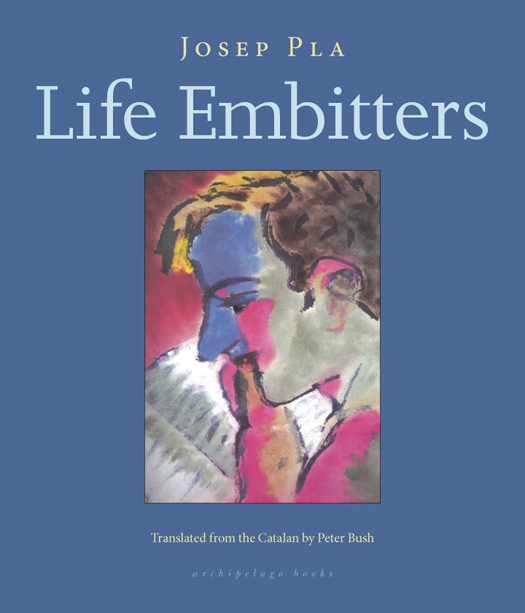
Life Embitters
کتاب های مرتبط
- اطلاعات
- نقد و بررسی
- دیدگاه کاربران
نقد و بررسی

May 4, 2015
This is the second volume of Pla's vast oeuvre of fiction, travel writing, and essays to be translated into English. Pla (1897â1981), to this day a controversial figure in his native Catalonia, was exiled from Spain in the 1920s. Wandering through Europe, he wrote down what he observed of the human condition, "where wretchedness and beauty entangle," influenced by his admiration for Dutch still-life painting. Pla's stories do indeed go nowhere, even though they're set in Barcelona, Paris, Ostend, London, Florence, and Rome. Place does not loom large in these tales, serving more as a backdrop for the interior journeys of lodgers in boarding houses and passengers on trains. In one story, a man in Catalonia thinks he will die if he sneezes three times, as predicted by a friend; in another, three men in a boarding house vie for the hand of the landlady's daughter after she is ravished by a younger man. In "A Madrid Lodging House," a lodger becomes acquainted with a giant and a dwarf when their troupe arrives to consume vast quantities of the landlady's Valencian paella. In "What You Might Expect: Nothing," a man falls in love with a beautiful woman on a French train who claims her husband will betray her that very day. "Memories of Florence," an outlier, is almost entirely a treatise on the history of art. Often the narrator will muse on love, friendship, or political ideas being debated at the time, but the stories mostly dwell on their (inevitably male) main characters' embittered and pessimistic views of themselves in relation to the world around them. Proustian in their attention to quotidian detail, the stories resonate only faintly today, perhaps to be enjoyed as period pieces full of idiosyncratic customs and long-lost cultural references.

April 1, 2015
Pla (The Gray Notebook, 2014, etc.), the late Catalan pessimist, is given another airing in English thanks to the efforts of his dogged translator, Bush. Gone 35-odd years now, Pla gave Romain Rolland a run for the money in the prolific department: when he died, he left behind more than 30,000 pages of published work and many more unfinished and uncollected pages as well. The present work, published as La vida amarga in 1967, continues Pla's long project of creating a literature of real-world description, blending history, travelogue, memoir, and journalism. Pla as narrator is ever present, but if he's a moody and brooding sort, his gaze is seldom trained inward and is certainly not self-pitying; he's busy looking across the table at the bistro or, more often, the boardinghouse and wondering who those strange people are and why they think and act as they do: "Two words and he'd already slipped up and, trembling and blushing, he sputtered out strange drivel. The landlady would silence him with a withering look. The others dared not laugh or speak. They lowered their eyes in dismay, as if suffering a great calamity." "The waiter had thought profoundly about tourism, and the conclusions he'd drawn had led him to admire artists boundlessly." Moving around the capitals of Europe in a time of depression and unremitting melancholy, Pla often serves up small moments of perhaps unintentional brilliance, as when he puts felines to work for political ends: "In this household, Frau Behrends and the cat represent the past, tradition, and order; Roby and the kitten, the future, revolution and instability." About all that's missing from this sprawling narrative of vignettes and sharp apercus is a sense of the author, who sometimes remains hidden; a circumstantial introduction, especially addressing Pla's politics in that most political of times, would have been very useful. Students of Orwell's journalism and of Kapuscinski will be glad to discover Pla, whose melancholy resembles that of his contemporary Stefan Zweig-and for some of the same reasons.

























دیدگاه کاربران